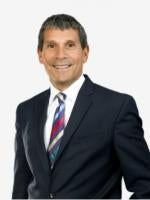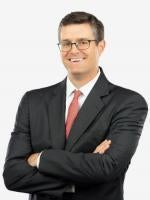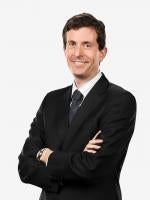On August 3, 2022, eleven suspended PGA Tour members filed a complaint 1 in the United States District Court for the Northern District of California (the “Court”) against PGA Tour, Inc. (the “Tour”), alleging violation of federal and California state antitrust laws and other suspension-related claims. The Plaintiffs were suspended from Tour membership as a result of their signing with the LIV Golf Invitational Series (“LIV Golf”), which is currently in its inaugural season. Those players are Phil Mickelson, Talor Gooch, Hudson Swafford, Matt Jones, Bryson DeChambeau, Abraham Ancer, Carlos Ortiz[1], Ian Poulter, Pat Perez, Jason Kokrak, and Peter Uihlein (the “Plaintiffs”).
The Complaint, filed under Mickelson v. PGA Tour Inc., comes after a very public, months-long debate among the Tour, LIV Golf, players, and fans around the world. At the epicenter of this public debate is LIV Golf’s financial backer, the sovereign wealth fund of Saudi Arabia, the Public Investment Fund. The Tour has argued that LIV Golf is using its financial leverage to sign tens-to-hundreds of millions-dollar contracts with top-ranked players as a means of “sportswashing” the Saudi government’s reputation for human rights abuses, rather than to grow the sport and actually make a profit. The Plaintiffs contend, however, that LIV Golf’s format has the potential to be the future of golf and enrich the overall fan experience by offering team and individual competitions, shorter schedules, and a shotgun start. LIV Golf and the Plaintiffs further claim that LIV Golf’s new format represents innovation in an otherwise static marketplace, noting that each team captain holds an equity interest in his team, allowing players to seize new commercial opportunities.
Public debate aside, the Tour indefinitely suspended seventeen players (including Plaintiffs) once they teed off at LIV Golf’s inaugural tournament in June 2022. As a result, each Plaintiff is currently prohibited from playing in any Tour event, the Ryder’s Cup or President’s Cup. However, earlier this year, the Plaintiffs were permitted to play in the four major golf championships, which consist of the Masters, the PGA Championship, the US Open, and The Open Championship (often referred to as the British Open). None of the major championships have announced whether LIV Golf players will be permitted to participate in 2023 and beyond.
Professional golf deviates from the team-based leagues that enjoy certain antitrust exemptions (i.e., NFL, MLB, and NHL). Unlike the team-based leagues, the Tour is a member-based, non-profit organization that works “on behalf of and for the benefit of the member players” and is not the governing body of golf. Furthermore, players must qualify and elect to become Tour members and are considered independent contractors. In this respect, Mickelson v. PGA Tour Inc. could significantly impact the future of professional golf.
The Plaintiffs’ Antitrust Claims
Three antitrust claims were brought by the Plaintiffs, each of which contend that the Tour is a monopolistic organizer of the “elite” professional men’s golf events in the United States and alleges that the recent actions by the Tour “serve no purpose other than to thwart competitive entry and preserve the Tour’s … monopoly power”:
Count I of the Complaint alleges that the Tour has violated Section 2 of the Sherman Antitrust Act by monopolizing the market for elite golf event services. Count I is predicated on the Plaintiffs’ contention that the Tour has monopsony power. A monopsony is an entity that has monopolistic purchasing power for a good or service in a particular market; here, the Plaintiffs allege that the Tour is the sole purchaser of elite golf players’ services, and maintains that status through illegal, anti-competitive conduct. In particular, the Plaintiffs allege that two provisions of the Tour’s Regulations are an unreasonable restraint on trade. The first provision at issue is the Media Rights Regulation, which generally restricts members from participating in non-Tour affiliated live or recorded golf programs without a waiver from the Commissioner. The second provision is the Conflicting Event Regulation, which restricts members from competing in non-Tour affiliated events in the United States in the same week as a scheduled Tour event (regardless if the player competes in the event) and exempts up to three international events per season, but only if the player first requests the exemption and the Commissioner grants it.2
-
Count II of the Complaint alleges that the Tour has violated Section 1 of the Sherman Antitrust Act by organizing and entering into a group boycott with the European Tour and others to collectively bar LIV professional golf players from participating in elite golf events. In support of this claim, the Plaintiffs cite numerous statements made by the Tour and European Tour executives regarding their relationship with one another and their reaction to the competitive threat posed by LIV, although the European Tour, Augusta National, and other potential participants in the Plaintiffs’ alleged group boycott are not currently parties to this case.
-
Count III of the Complaint effectively parallels Count II of the Complaint, but is brought under the Cartwright Act, California’s primary state antitrust law. Courts often analyze claims brought under the Cartwright Act under the same framework as with a Sherman section 1 claim, and while it’s not uncommon for plaintiffs to plead under both the Sherman Act and the Cartwright Act, it’s unclear at this time whether the Plaintiffs plan to argue that the Tour’s liability is more extensive (or different, in some way) under the Cartwright Act as compared to Count II.
The Plaintiffs’ Non-Antitrust Process Claims
The Plaintiffs also bring two non-antitrust, process claims challenging their Tour suspensions:
-
Count IV of the Complaint alleges that the Tour’s Regulations is a contract between the Tour and its members, and the Commissioner’s denial of permitting the Plaintiffs to participate in Tour competition while their suspension appeals were pending (which includes participation in the FedEx Cup Playoff for those Plaintiffs who qualified as top-125 players in the 2021-2022 Tour season) was a breach of the display process provisions of the Tour’s Regulations.
-
Count V of the Complaint sought a declaratory judgment from the Court and alleged that the Tour’s procedures for imposing the Plaintiffs’ suspensions violated their right to a fair procedure under California and Florida law because the Plaintiffs did not have a meaningful opportunity to be heard and were denied any review by an impartial maker, among other allegations related to the aforementioned claims.
TRO Proceedings
The Plaintiffs’ claims, combined with the FedEx Cup Playoffs, which was held on August 11-14, 2022, formed an important part of three of the Plaintiffs’ motion for a temporary restraining order 2 (“TRO”) filed with the Northern District on August 3, 2022. The Tour filed its opposition 3 to the TRO Plaintiffs’ motion on August 8, 2022, alleging that the TRO Plaintiffs were “fabricating an emergency.” The Court held a hearing on August 9, 2022, and rejected the TRO motion from the bench. The Court held 4 that the TRO Plaintiffs’ failed to demonstrate irreparable harm because the risk of missing PGA Tour events was calculated in the compensation the TRO Plaintiffs accepted from LIV Golf. It also found that TRO Plaintiffs did not show that the law and facts “‘clearly favor’” the success of the merits of their claims at this stage of the case.
Key Observations
Even though the Plaintiffs’ lost the first legal battle, we have likely not heard the last of this matter. Among other things, the TRO proceedings have likely provided a foreshadowing of how the Plaintiffs and the Tour intend to advance Mickelson v. PGA Tour Inc. Given that 30 of the 200 players that played on the 2021-2022 Tour season have reportedly played or committed to play in LIV Golf events as the date of this alert, it may make settlement more difficult or unlikely. If litigated to a final decision, Mickelson v. PGA Tour Inc. could also impact the structure of similarly-situated sports organizations, such as NASCAR, UFC, and USTA, regardless of the outcome.3
FOOTNOTES
1 As of August 9, 2022, Carlos Ortiz has withdrawn from the suit.
2 Interestingly, Count I renews the basis of the Federal Trade Commission’s 1994 investigation, which was ultimately dropped.
3 The United States Department of Justice launched a probe over the Tour’s handling of LIV Golf’s emergence in July 2022, but no updates have since been reported.







 />i
/>i

